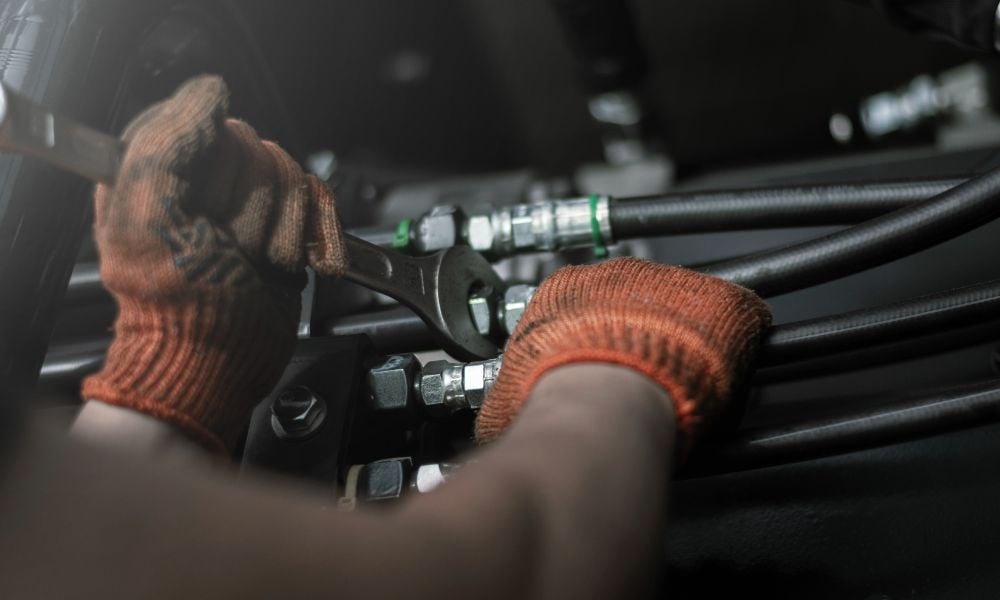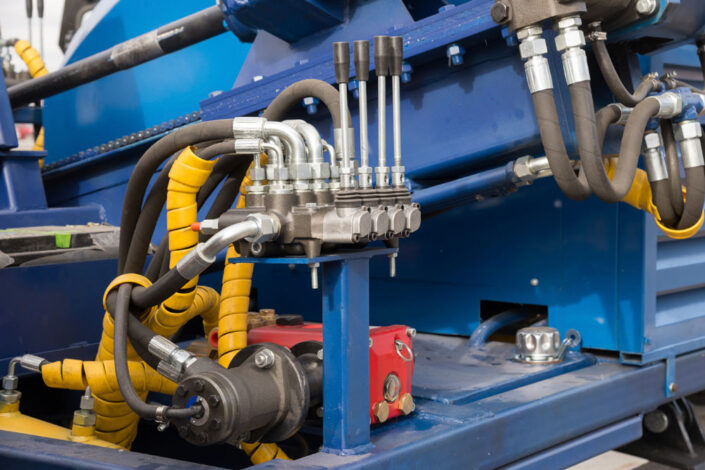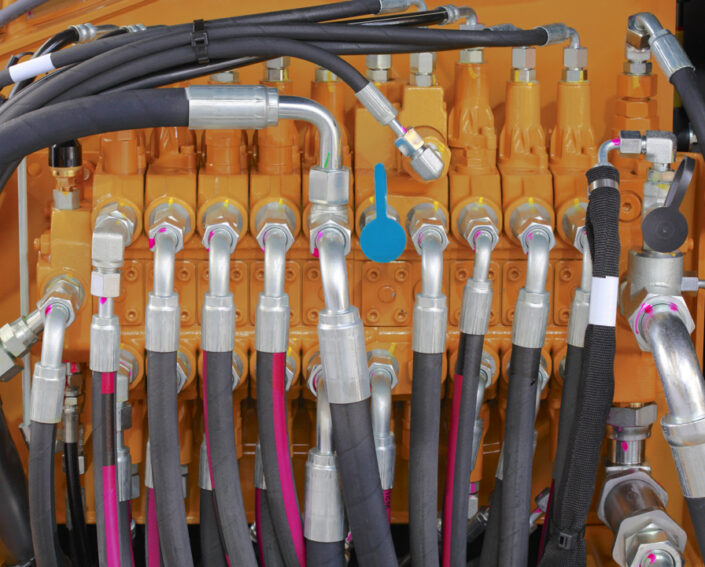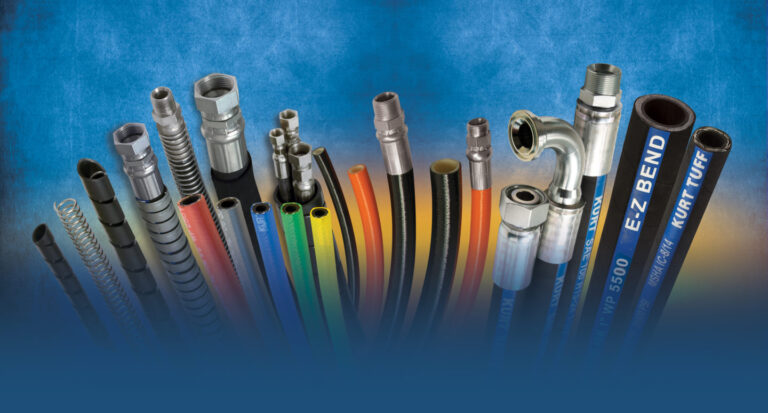Hydraulic hoses are a modern marvel, essential for power and productivity in the industrial world. Without these powerful components, many of today’s most important machinery would come to a grinding halt.
In this article, we will explore the lifeline of power that hydraulic hoses provide – their importance, function, and variety. We will also investigate how advances in engineering have enabled them to be stronger than ever before while remaining lightweight and flexible.
By understanding the vital role hydraulic hoses play in our lives it is possible to ensure they remain efficient and reliable for years to come.
The Function of Hydraulic Hoses
Hydraulic hoses are an essential component of modern machinery, providing the conduit for pressurized fluids to power motors and other equipment. Without them, machines would be unable to generate the necessary force required for many industrial tasks.
So what is the function of hydraulic hoses? The primary role of a hydraulic hose is to transmit fluid from one component to another within a system or machine. This transmission can involve transferring high-pressure fluid over long distances to power large machinery such as cranes and diggers.
The house itself acts as an intermediary between two separate components, allowing fluids like water or oil to travel through it safely without leakage or blockages occurring along its length. In addition, these hoses must also withstand extreme temperatures as well as pressure fluctuations that occur during operation – making them incredibly important when it comes to ensuring reliable performance from any machine they are connected to.
A second key function of hydraulic hoses is their ability to provide flexibility within systems by connecting different sections for movement and adaptation according to changing circumstances on site. By utilizing flexible metal mesh tubing that can bend around obstacles easily while still maintaining strength, these hoses allow greater maneuverability than rigid pipes would offer – enabling quick changes in direction if needed without compromising safety standards or functionality at any point in time.
Finally, hydraulic hoses serve yet another purpose; protecting vital components within machines from potentially dangerous situations that could arise due to excessive heat build-up created by friction caused by circulating liquids moving through them at speed over extended periods of usage – leading to potential fires and explosions if left unchecked. To prevent this possible outcome, manufacturers use special materials designed specifically with anti-friction properties which help dissipate energy away from hot spots before damage becomes apparent – helping maintain efficiency throughout its lifespan even after years of use.
Benefits of Using Hydraulic Hoses

As one of the most essential components in power systems, hydraulic hoses serve as a vital lifeline for energy transmission. They are responsible for transferring and controlling the flow of water, gases, oils, and other fluids from one place to another.
Hydraulic hoses offer a variety of advantages that make them an ideal choice for many industries and applications. One of the major benefits associated with using hydraulic hoses is their ability to withstand high pressures without experiencing any damage or wear and tear.
This makes them an ideal option when it comes to conveying large amounts of liquid at extreme pressure levels. Additionally, they are resistant to corrosion and can last long even under harsh environmental conditions like intense temperatures or extreme weather conditions.
Moreover, hydraulic hoses come in different sizes that allow users to customize them according to specific requirements such as length or diameter. Furthermore, these hose assemblies also have smooth inner surfaces that help reduce friction while conveying liquids across long distances thus resulting in greater efficiency during operation. Finally but not least important is that hydraulic hoses are highly durable yet lightweight making them easier to transport from one location to another with minimal effort and cost involved.
As such they provide numerous advantages over traditional methods used for transporting liquids such as pumps or pipes which tend to be relatively bulky and expensive due to maintenance costs involved down the line.
Potential Risks and Challenges with Hydraulic Hoses

Despite their importance in the power industry, hydraulic hoses come with potential risks and challenges. The main risk associated with hydraulic hoses is abrasion caused by friction between the hose and its environment.
This can cause rupture, which in turn leads to fluid leakage or complete system shutdowns. In addition to this physical damage, there are also biological risks that need to be taken into consideration when using hydraulic hoses.
Microorganisms like bacteria can enter into a closed-loop hydraulics system through these hose connections and contaminate the entire system over time leading to corrosion or blockages of valves or other components. Temperature control is another key challenge for the proper operation of hydraulic hoses; extreme temperatures can lead to the degradation of the material used in manufacturing those hoses resulting in premature failure as well as increased energy consumption due to increased resistance from degraded materials. Temperature fluctuations should be monitored closely during operations for optimal performance.
Finally, improper installation and maintenance of hydraulic hoses could result in leaks due to loose connection points between different elements within a circuit/system setup, thus reducing overall efficiency while increasing safety hazards related to oil spills at the workplace. It’s therefore essential that all employees involved are properly trained on how best to install and maintain these systems safely so they perform optimally at all times without any disruptions or breakdowns caused by human negligence
Conclusion

Hydraulic hoses are an essential part of the power system for many industries. They provide a reliable lifeline to ensure efficient operation and smooth performance in all types of applications.
Hydraulic hoses offer flexibility, durability, and ease of maintenance that make them ideal for any situation requiring a secure connection between components. With their wide range of sizes and materials, hydraulic hoses can be used in virtually any environment where fluid is present.
In sum, hydraulic hoses play a critical role in providing the necessary power to keep operations running smoothly and efficiently across all industries.

